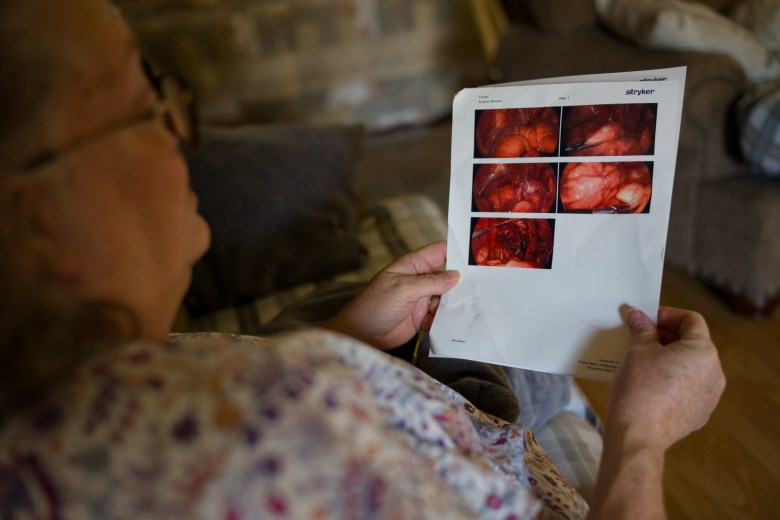Kids Sue EQT Over Illness Linked to West Virginia Operations

The Legal Battle Against EQT’s Fracking Operations
Four children from a rural area in northern West Virginia are taking legal action against the natural gas company EQT, alleging that the company’s fracking operations have caused serious health issues. The lawsuit claims that EQT knowingly exposed the children and their families to hazardous pollutants, leading to long-term health complications and forcing them to leave their homes.
The lawsuit was filed on August 6 and seeks compensation for medical monitoring, as well as damages for emotional distress and negligence. It highlights the significant health risks faced by the children, who are described as having an increased risk of developing severe diseases due to their exposure to harmful emissions. The complaint also accuses EQT of continuing its operations despite knowing the negative impact on the community.
EQT has not yet responded to requests for comment. However, the lawsuit alleges that the company ignored the health concerns of the children and their families while continuing its operations. It further claims that EQT made public statements to discredit the plaintiffs and their guardians.
Garret Hollabaugh, one of the minor plaintiffs, and his family were residents of Knob Fork, where EQT operates a compressor station, frackwater storage tanks, and a nine-bore well pad. In 2022, three families, including the plaintiffs, moved out of the area after experiencing various health issues that significantly affected their quality of life.
Health Issues Linked to Fracking
The lawsuit details a range of health conditions experienced by the children, including anemia, gastrointestinal problems, cognitive issues, headaches, chest pain, shortness of breath, rashes, ear ringing, dizziness, nausea, depression, anxiety, scoliosis, allergies, and lethargy. These symptoms are attributed to EQT’s operations, which are said to be grossly negligent and reckless.
Garret, who is 17 years old, expressed uncertainty about the legal process but emphasized the importance of financial support for medical expenses. He has been diagnosed with a connective tissue disorder, joint issues, scoliosis, thyroid nodules, anxiety, depression, and anemia. His doctors have ruled out genetic factors, and he now faces the risk of losing his eyesight and mobility.
Piper Tennant, another plaintiff, experiences frequent dizziness, nausea, and shortness of breath. She also suffers from phantom “bee stings” that affect her daily life. Her father, Scott Tennant, noted that the health issues have disrupted their lives, making it difficult to maintain normal routines and future plans.
Jozlyn and Brooklyn Kennedy, the other two plaintiffs, have seen some improvement in their health since moving away from the area. However, they still experience occasional headaches and nausea, along with acute chemical sensitivity.
Long-Term Health Impacts and Environmental Concerns
The lawsuit also addresses the broader environmental impact of EQT’s operations. Internal records from the West Virginia Department of Environmental Protection show that EQT’s emissions in Knob Fork contain benzene, toluene, ethylbenzene, xylene (collectively known as BTEX), as well as hexane and formaldehyde. These volatile organic compounds (VOCs) can cause a range of health effects, including dizziness, headaches, tremors, anxiety, confusion, nerve damage, muscle fatigue, and even death at high levels.
The children tested positive for exposure to BTEX, styrene, phthalates, and MTBE, all associated with fracking operations. Lisa Johnson, an attorney representing the families, believes a judge may order mediation or arbitration in response to the lawsuit.
Financial Struggles and Future Concerns
The families have faced significant financial and health challenges. Garret has been hospitalized four times in the last year for a collapsed lung, which doctors say is too frequent. Piper’s doctor has allowed her to return to cheerleading under strict conditions, but her health remains a concern.
Scott and Abby Tennant also suffer from chronic health issues. Scott has a persistent cough and neurological conditions, while Abby uses a wheelchair due to worsening symptoms from an autoimmune disorder. They have struggled financially, with limited ability to work due to medical appointments and surgeries.
EQT’s Growth Amid Fossil Fuel Expansion
Despite these allegations, EQT continues to expand its operations. Under the Trump administration, the company benefited from policies favoring fossil fuel development. Recently, EQT acquired Olympus Energy for $1.8 billion, regaining its position as the largest natural gas producer in the U.S.
The company has also signed agreements to supply gas to new power plants, including one in Homer City, which will be the nation’s largest gas-fired power plant. EQT’s CEO, Toby Rice, claims that the company’s operations are a model for responsible hydrocarbon production, but scientists dispute this assertion.
Ongoing Litigation and Community Impact
The lawsuit brings attention to the long-term health and environmental consequences of fracking in rural communities. As EQT continues drilling in Knob Fork, the families hope for justice and compensation for the harm they have endured. Their case highlights the ongoing struggle between corporate interests and the health and safety of local residents.
Post a Comment for "Kids Sue EQT Over Illness Linked to West Virginia Operations"
Post a Comment